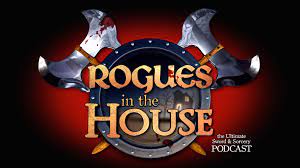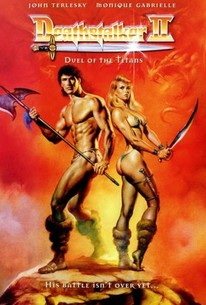 |
I did not look like these dudes,
but was, in spirit. |
Reading Donna Gaines’
Teenage
Wasteland: Suburbia's Dead End Kids (1991), an otherwise unremarkable sociological study about
troubled teenagers living in suburban New Jersey, has made me think a bit more
about my own life, my story, and trying to knit it into a consistent whole. Like many other boys and young men, I’ve always been
interested in
things--Music, D&D,
weight lifting, the military, history, fantasy fiction—over people. Maybe more
so than your average person. I’ve always sucked at small talk, and
relationships, and spent very little time examining myself, instead enjoying music
and books and the like. Most of my life has been existing, and living without examination.
I’ve decided in my middle age (47) to do more of that, maybe here on the blog.
I grew up in the time period and was a teenager in the same timeline
of Teenage Wasteland, the late 1980s.
My own experiences were different from the kids in the book—I would say that my
hometown of Reading, MA was more affluent than Bergenfield, New Jersey, with more
promise in my particular geographic area, more jobs due to the presence of a
good economy in nearby Boston and its suburbs. My family was not affluent—my dad
held a blue collar job building and developing centrifuges at a production plant
in Brighton, while my mom took care of her three kids and did odd jobs (office
cleaning, baby sitting) to help make ends meet, before eventually taking a job
as a legal secretary as we got older. We were not anything close to wealthy, we
didn’t always get what we wanted for birthdays or Christmas, and we wore hand
me downs and a mixture of new and used clothing, and lived in a modest cape on
a dead-end, blue-collar street. My town had its burnouts like those described
in Gaines’ book: Reading High had a back parking lot where (incredibly, looking
back from today) you could smoke. We had the metal kids, long-haired and denim
jacketed, opposite the jocks. Some went to the nearby vocational school and became
mechanics.
I had brushes with the burnout culture, but had a foot in
each camp, which in hindsight may have made me somewhat unique. I played football,
and track, and kept my hair short, and my grades were unremarkable, C’s and B’s,
save for English, where I could pull As with little difficulty. But I also wore
metal T shirts and hung out with a semi-fringe, though not burnout crowd. We
loved metal, we drank when we could get our hands on beer or cheap vodka. A few
of my friends smoked—cigarettes, and again when we could get our hands on
it/post high school, weed. But, we didn’t do hard drugs, and we mostly stayed
out of trouble with the police, a few scrapes here and there aside.
Like the kids in Teenage
Wasteland I didn’t know what the fuck I wanted to do with my life. Not even
a clue. I went to state college because I was a decent student, but mainly
because it was the thing most kids did—not all kids, not for example my friend
Wayne who went from retail to house siding to carpentry, and now today has his
own small business. Not a couple other acquaintances and occasional drinking
buddies who drifted into substance abuse. But most. Although thankfully I didn’t
drift down that latter path, I was nonetheless a drifter, sliding into college,
going along for the ride, partying and going to class. At college I had two
major, life-altering occurrences—I met my future wife (we started dating as
sophomores, and got married a year after graduation, in August of 1996) and I discovered
a love of reading and writing after a false start in sociology and criminal
justice. Eventually I chose English as a major and worked on my college newspaper.
I excelled in all my English and writing classes because I loved the material.
I guess I was lucky, and met the right girl, which led to
buying our first town house, setting me on the path of home ownership (two
houses later, I’m living in the dream in a large colonial), and starting a family
with two girls of my own. My love of reading and writing turned into a job on a
small local newspaper, at the tail end of viability of local journalism. That later
turned into a job at a medical b-to-b publishing company and my current,
well-paying job and stable career.
Given my modest upbringing, the opportunities I had to take
my life in a different, darker, direction, how did I end up where I am today
and not in some dead-end, like that described in Teenage Wasteland?
The 80s had their issues. It was the decade of excess
(again, for some), and probably the beginning of the have/have not wealth
divide that is plaguing the country today. Manufacturing, blue-collar jobs like
my dad held were being steadily eroded (my dad retired at the right time, in the
late 90s, just as his company was bought and moved overseas. His old plant is
now a condo). I stayed out front of ruin by cashing out on our first home (though
taking a hit on our second), and getting out of print journalism just as the
internet killed newspapering. I was competent—I’m being unnecessarily humble, I
was an editorial star at my current job—which allowed me to survive the financial
crisis of 2007-2008 and a deep round of layoffs. Due to severe mismanagement at
the same company we endured an even worse series of layoffs and eventual purchase
in 2012/2013, and I again survived those.
Kids were troubled back in the 80s. I saw some of that
first-hand, and some of the consequences. But, kids were also troubled in the
60s, and 70s, and the 90s. And now today, with everyone wondering about the
effects of staring at cell phones all day. “Kids these days” has probably been
muttered by every single adult since ancient Greece, and in fact it has. Socrates
himself wrote, “the children now love luxury; they have bad manners, contempt
for authority; they show disrespect for elders and love chatter in place of
exercise.” Sound familiar?
 |
| 1994? Sue and I, just getting started. |
I was fortunate enough to go to college and fall in love
twice—once with my wife, and again with the likes of Shakespeare and T.S. Eliot
and John Keats. I thank my parents for putting me through college, and scraping
to do so, so that I did not graduate with a mound of debt. My wife had some,
but together we managed it, and paid it off. We lived on nothing for the first
year of marriage, living in an apartment in Burlington, VT on scraps.
She was a grad student and I worked selling insurance, and later as a security
guard, making almost nothing. That continued until we moved back to MA, and I started stringing for a local newspaper, where I got hired full time. My wife
became a speech-pathologist and has since moved into school administration.
I guess you could say (to use modern vernacular) that I was “privileged.” Some of that is true, in that I grew up in a stable if unremarkable U.S. suburbia of the late 20th century, not war-torn Bosnia. But I reject that as the sole story. I worked consistently, my entire life.
I have had jobs since I was 11-12, and worked at every school break, doing
every odd job you can possibly imagine. Shagging carriages, digging fence post
holes, sweeping floors, delivering newspapers. As a professional I didn’t take
work home with me, I didn’t kiss ass, but I always (and still) believed in
obligation, and keeping promises. Maybe it’s the old Northern European/Danish
blood in me, and my reverence for the oath and/or Protestant work ethic, but when I’m being paid to do a job
from 8:30-5, I work, and I do it to the best of my ability. I don’t believe in
half-assing anything I commit to. I don’t always commit, but when I do I’m in,
and my work, if not always brilliant, ranges from well-done competence, to
exceeding expectations. When you do this, over and over again, you will
eventually be noticed, and promoted. I have seen others in very similar circumstances and with similar abilities fail.
The world is a troubled place, and always has been, and despite our best efforts to socially engineer it, probably always will be. Some people
will get shit breaks. But I think hard work and dogged persistence can still
lift you up from teenage wasteland.









